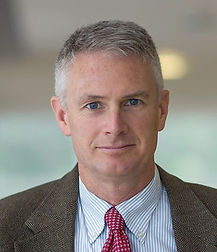Mark Canada, Ph.D.

Issue #6
July 20, 2024
-
Ring the Bell: Make a Positive Difference
-
More from Mark:

If you watched Franklin, the recent Apple miniseries starring Michael Douglas, you know that Benjamin Franklin played an important role in the American Revolution, helping to secure French support for the colonies in their war against Great Britain. How did he do it?
Franklin was an experienced writer, and an important part of writing well is knowing one's audience. When Franklin arrived in France in late 1776, he was world famous, thanks largely to his scientific work on electricity. Today, many people know the story of his kite experiment, which established that lightning is a form of electricity, but they may not know that he also invented the lightning rod, which has saved countless buildings from destruction, and coined terms such as positive, negative, charge, battery, and conductor.
This scientific work helped to enhance Franklin's reputation, and this reputation--specifically his fame as an American genius--worked to his advantage as a diplomat in France, where he adopted (and leveraged) his reputation as, in the words of biographer Walter Isaacson, a "frontier sage." In his wonderful book The Americanization of Benjamin Franklin, historian Gordon Wood observes that "Franklin as the representative American belonged to France before he belonged to America itself." He continues, "Because the French had a need of the symbol before the Americans did, they first began to create the images of Franklin that we today are familiar with—the Poor Richard moralist, the symbol of rustic democracy, and the simple backwoods philosopher."

Painter Anton Hohenstein provided this rendition of Benjamin Franklin’s presence at the French court. Hohenstein shows Franklin being crowned by a laurel wreath, but he became famous in France for wearing a fur cap, a signifier of his persona as a “backwoods philosopher.” Source: Wikimedia
In France in the 1770s, Franklin was a great celebrity--something akin to the Beatles in America in the early 1960s--and he knew it. His face appeared on medallions, clocks, snuffboxes, and more. "In many homes," Alice Hall has written, "Franklin's picture hung over the mantel--the god of liberty enthroned." John Adams, who spent much of his time as a fellow diplomat in France consumed with envy of Franklin's fame, wrote, "There was scarcely a peasant or a citizen . . . a lady's chambermaid or a scullion in a kitchen . . . who did not consider him as a friend to human kind." Franklin wrote to his daughter, Sally,
The clay medallion of me you say you gave to Mr. Hopkinson was the first of its kind made in France. A variety of others have been made since of different sizes; some to be set in the lids of snuffboxes, and some so small as to be worn in rings; and the numbers sold are incredible.
These, with pictures, busts and prints (of which copies upon copies are spread everywhere), have made your father's face as well known as that of the moon, so he durst not do anything that would oblige him to run away, as his phiz [face] would discover him wherever he should venture to show it.
A positive image can be an invaluable asset. Look at all the sports heroes and other celebrities who serve as spokespeople for companies trying to sell us products unrelated to their areas of success. Peyton Manning knows football, and Brad Paisley knows music, but they team up to promote insurance. How does that work?
It works because of something called ethos, which meant "character" to ancient Greeks. Rhetoricians such as Aristotle understood that ethos, along with reason and more, matters to audiences. (Shakespeare also understood this truth. Check out Mark Antony's famous speech in the play Julius Caesar. If you know the play, you probably remember the repeated assertion that "Brutus is an honorable man.") Today, we still tend to respond positively to ethos, although character is only part of the equation; we also respond to people we like, even when their likability bears no direct relationship to their credibility on a particular subject--such as insurance!
Now, Franklin actually knew a lot about politics and more, so he also could appeal to his audience on the basis of logos, or reason, but it made sense to leverage ethos, as well, and he did. Can we blame him?

Employers are calling for college graduates with so-called “soft skills,” but are students hearing the call?
Expressing doubt about her choice of major, a student once compared herself to a friend who was attending another institution, where she was developing a set of easily recognizable job skills. Compared to this friend, our student felt inadequate. What, she asked, would she be able to show for the four years she was putting into college?
Showing what they do for students has long been the problem for those of us who teach the arts, including painting and my own field of literature. We sometimes point to communication and collaboration as valuable lessons taught through the arts, but students can develop these skills when studying other disciplines. Is there really something distinctive about immersing oneself in the arts?
I believe there is, but that something is not a skill, but a perspective, one that empowers us by reducing us. Let’s call it wonder, a word that, in various forms, has pervaded literature in English literally since there has been literature in English, from Caedmon’s Hymn to Beowulf to Paradise Lost and beyond.
About Mark

A longtime English professor, scholar, and author, Mark Canada, Ph.D., writes and lectures on a variety of authors and subjects in the fields of literature, language, history, and leadership.
More from Mark
My scheduler and I are booking lectures for the summer and fall. Please send an email to mark.canada@icloud.com to pitch some possible dates for your group. Here are a few topics I can cover:
-
"The Literature of the Sea"
-
"The Literary Mediterranean"
-
"Puzzling Poe"
-
"Frederick Douglass: Author, Abolitionist, Activist"
-
"Franklin in France: Diplomat, Celebrity, and Flirt"
-
"Benjamin Franklin: Scientist, Diplomat, Author--and Role Model?"